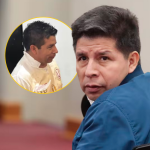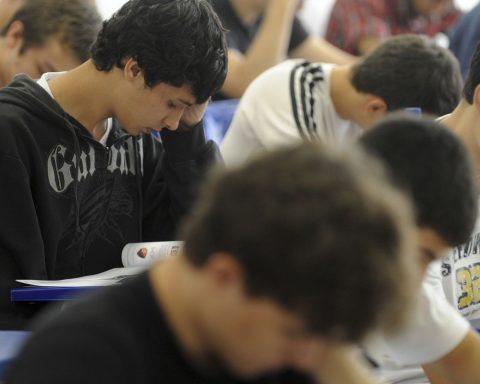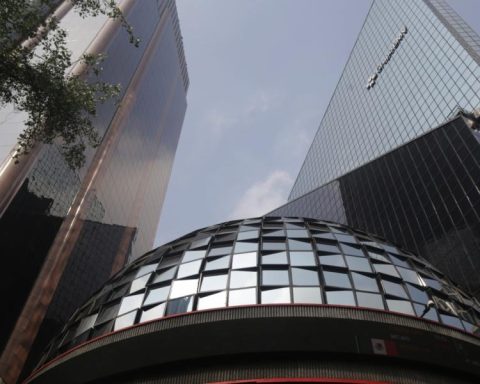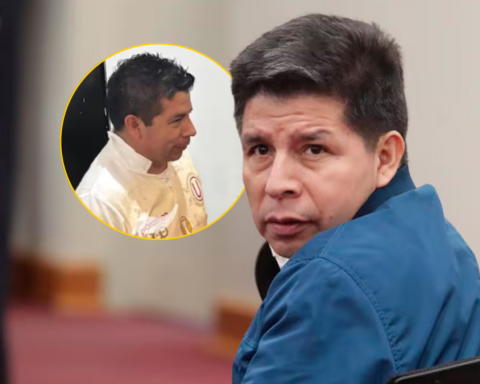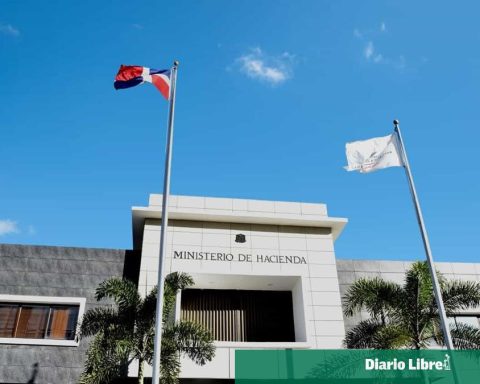Finally, and after a long and tense negotiation, the ruling party obtained the necessary votes to keep in force the administrative agreement agreed at the beginning of the current legislative period, which allowed it to keep the head of the Chamber of Deputies and Deputies, in the face of the eventual risk of a possible empowerment of the right in complicity with the PDG and the DC, which did not achieve the necessary articulation to promote a candidacy with the required consensus. At the last minute, the name of the liberal deputy and former spokesperson for the Approval campaign, Vlado Mirosevic, appeared as the letter from the government parties to head the Chamber, after a pressured Communist Party (PC) had to give up its legitimate right to preside over the Corporation, hand in hand with the former spokesperson for the failed campaign in favor of a new Constitution, Karol Cariola.
With a PC clearly beaten, and after the two ruling coalitions met last Sunday in a conclave that sought to rearticulate forces and deliver a sign of unity, it was finally the Democratic Socialism parliamentarian who managed to gather the necessary support to avoid a harsh defeat, which would have complicated the aspirations of the Executive to carry out emblematic projects, such as tax reforms and the pension system. Leading the negotiations that allowed the nomination of Mirosevic and the obtaining of votes by some deputies of the PDG and DC benches, the Minister of the General Secretariat of the Presidency (Segpres), Ana Lya Uriarte, assumes this as a his triumph and begins to become a relevant political figure inside the Palacio de La Moneda.
In addition, those who accompany Vlado Mirosevic in the board of directors that will head the Lower House for the next eight months, are the deputies Carlos Bianchi (independent), as first vice president, and Catalina Pérez (RD), as second vice president. It is precisely the parliamentarian of the Broad Front who, in this interview, delves into the main challenges of the ruling party after obtaining the head of the Corporation, which – in her opinion – constitutes a triumph of all the parties that were part of and respected the administrative agreement signed last March, including parliamentarians from the Christian Democracy and the People’s Party. In this way, she does not rule out future conversations with these communities, since she assures that, in order to obtain the results that the Government needs, it will be necessary to open up to dialogue with all sectors. However, it is assumed that both the PDG and the phalanx are experiencing complex realities these days, which could even cause their definitive fragmentation.
Assuming security, the cost of living and the continuity of the constituent process as legislative priorities, Pérez ignores a supposed empowerment of Democratic Socialism and the resurgence of a concertacionist logic within La Moneda from the exit plebiscite, since he believes that said coalition it was also part of the failure of the Approval. Likewise, he harshly criticized those who disrespected the governability agreement agreed in March, emphasizing that it is very difficult to believe again those who did not keep his word.
-How important for you, as a ruling party, was the result of the vote this Monday in the Chamber? What is the biggest challenge for the incoming board of directors?
-I think it is transcendental, not because of a dispute between the ruling party and the opposition, but because we need a National Congress that, in coordination with the Executive, manages to connect with the needs of the country, manages to put social emergencies on the table, manages to put the security debate and priorities in terms of the cost of living on the table. That is why we wanted to lead the Chamber of Deputies and Deputies, and I think that together with the new board of directors we have these priorities ahead of us, and we are clear that this is achieved with a lot of dialogue, with a lot of unity and with a lot of invitation to work together, understanding the moment the country is going through.
-How do you see the challenge of dialogue with opposition sectors to carry out the government’s reform program? Is it feasible to agree again with those parliamentarians who chose to evict the previously signed administrative agreement and who refused to allow the PC to preside over the Corporation?
-I hope that this is the case and that these trusts can be rebuilt, I hope that we can add more actors to this agreement, and that those of us who signed it reaffirm our will to participate in it. In this regard, the result of this Monday I do not think it is an exclusive triumph of the ruling party, it is also a triumph of all those who decided to attend this administrative agreement (…). When one puts into perspective that the problems of organization of the National Congress are not exactly the problems that ordinary Chileans have, I believe that the need for both to connect must be accepted, and I believe that we are immersed in this challenge the day today, and I hope that it will be an encouragement not only for the ruling party, but also for the opposition, so that we can legitimize and recover politics, putting it at the service of the people and the great challenges that the country faces.
-Why could the PC assume the presidency of the Chamber in eight more months, understanding that today it could not do so because of the strategy deployed by various sectors, including where parliamentarians who voted in favor of Vlado Mirosevic come from?
-What I hope is that the word pledged is respected, because I believe that what we achieved on Monday with the election of this table was precisely to ensure that the administrative agreement that we embarked on at the beginning of the year be respected, and I hope that this agreement is maintained for the coming periods. Indeed, what we decided to do was castling to generate the possibility that this agreement will remain in force, but we keep the dialogue open regarding the challenge of rebuilding trust that we assume all the parties subscribed to said pact.
-Do you agree that there was a kind of veto and anti-communist strategy that prevented Karol Cariola from presiding over the Corporation? Do you assume that Mirosevic’s candidacy was a “moderate letter” from the ruling party to avoid a new defeat?
-In no case can we allow a political party not to have the legitimate aspiration of leading the Chamber of Deputies. It seems to me that this is undemocratic and I think that when it affects the PC, or if it affects any other party, it is something that cannot be allowed. Now, this condemnation of this exclusion does not mean that we do not agree with the leadership of Deputy Vlado Mirosevic, who I have no doubt will carry out this need for coordination with the Executive, and this need to put Congress at the emergency services for Chilean men and women, and all government parties are going to contribute to that. And I hope that not only the ruling party or those who attended the administrative agreement will do so, but also those who from the opposition look to this new board of directors, but who I hope, with high expectations, contribute to the functioning of a democratic institution such as the National Congress.
-What do you think of some official voices, such as that of Mayor Daniel Jadue (PC), who warn of a consensus-building logic that has prevailed in the Government since the exit plebiscite? Could the election of Mirosevic go along this line of action in favor of the moderate forces?
-Believing that Democratic Socialism acquires a preponderant space in La Moneda due to the defeat in the plebiscite of September 4, would mean assuming that Democratic Socialism was not part of the Approval campaign, and I believe that in no case is that So. I think that, indeed, from the progressive forces we suffered a major defeat on September 4 regarding the opportunity to offer a Constitution that is up to the challenges that we have as a country, in the framework of the 21st century, but I believe that today what we are doing it is to put the governance of institutional spaces and the needs of Chileans first, regardless of the candidacy, both of Deputy Mirosevic and Deputy Cariola.
-What do you think is the main task for the new board of directors of the Chamber, understanding the urgency of generating greater coordination with a government that urgently needs to resume the conduct of its legislative agenda? Considering that they are a minority sector in Congress, how much are they willing to give up to get the necessary support to carry out their reforms?
-I think we have to work to rebuild trust and to define what we can agree on, and I don’t think there are few that we can agree on, for example, in terms of citizen security, in terms of cost of living and , even, in terms of the constituent process. I believe that there are democratic minimums that are needed for Chile to advance, but I also believe that a necessary skill in politics is the construction of agreements, but that it is also a necessity of politics that the agreements be respected, and whoever does not respect agreements is not a trustworthy actor and you cannot dialogue or trust that actor. So, for the same reason, we are going through a complex situation, where we need the various parties that believe in democracy as a way of responding to the social emergencies of our country to understand the scenario we are going through and make themselves available, as well as we as officialism put ourselves, of that necessary construction of agreements and democratic dialogue.
-Finally, you as a board of directors will have an important role in the trapped discussion of continuity of the constituent process, what do you think of those who believe that the failure of the new Constitution began in the design deployed from the agreement of November 15, 2019? What do you think have been the driving mistakes that have made it impossible for a new agreement to come to fruition?
-I think that linking a great milestone of generating a national agreement with the particular result of a text, I don’t think it’s appropriate. I believe that Chile urgently needs us to talk about three issues: citizen security –where the Minister of the Interior has called for the generation of a great national agreement–, cost of living and the construction of a social security system that takes care of people in a time of economic urgency, and I also believe that we must also work on an agreement regarding the constituent process. And in that I want to trust in the will of all political sectors, because I do not believe that this was a problem with the conduct of the process by the president of the Senate or the former president of the Chamber. I believe that rather there has been a lack of political clarity regarding the positions held by the various actors, and I hope that this will not be repeated, if what we want is to give Chile institutional stability, which I believe is part of the challenges of normalization that the country has and that are not the exclusive responsibility of the Government, and whoever thinks that I think is wrong, but that they are the responsibility of all the sectors that believe in democracy as a way of resolving conflicts and as a way of responding to people’s emergencies.










